Downtrodden. Subjugated. Repressed. When we think of rural women and girls in the global south, images of hardship and despair crowd in. Yet I have learned that, when it comes to the female of the species, in the face of unimaginable trials, courage, strength and resilience triumph more often than not. Rarely is this demonstrated more clearly than in the quest for education.
Today we celebrate International Day of Rural Women — a day to recognise the invaluable contributions of rural women, as well as drawing attention to the significant structural barriers and discriminatory social norms they face. Chief among causes is gender inequality, which can be traced to the many challenges girls in rural areas face in getting the education they need. Still amongst the most marginalised groups in education — rural girls are the first to be excluded, the first to drop out.
At this year’s Commission on the Status of Women (CSW) I had an opportunity to discuss these issues with Taily Terena, a youth activist with the indigenous women’s rights organisation ECMIA. I learned so much as she recounted her experiences of growing up as a member of an indigenous community in rural Brazil. Here I share a few extracts from our conversation:
Could you introduce yourself to our readers and tell us a bit about your background?
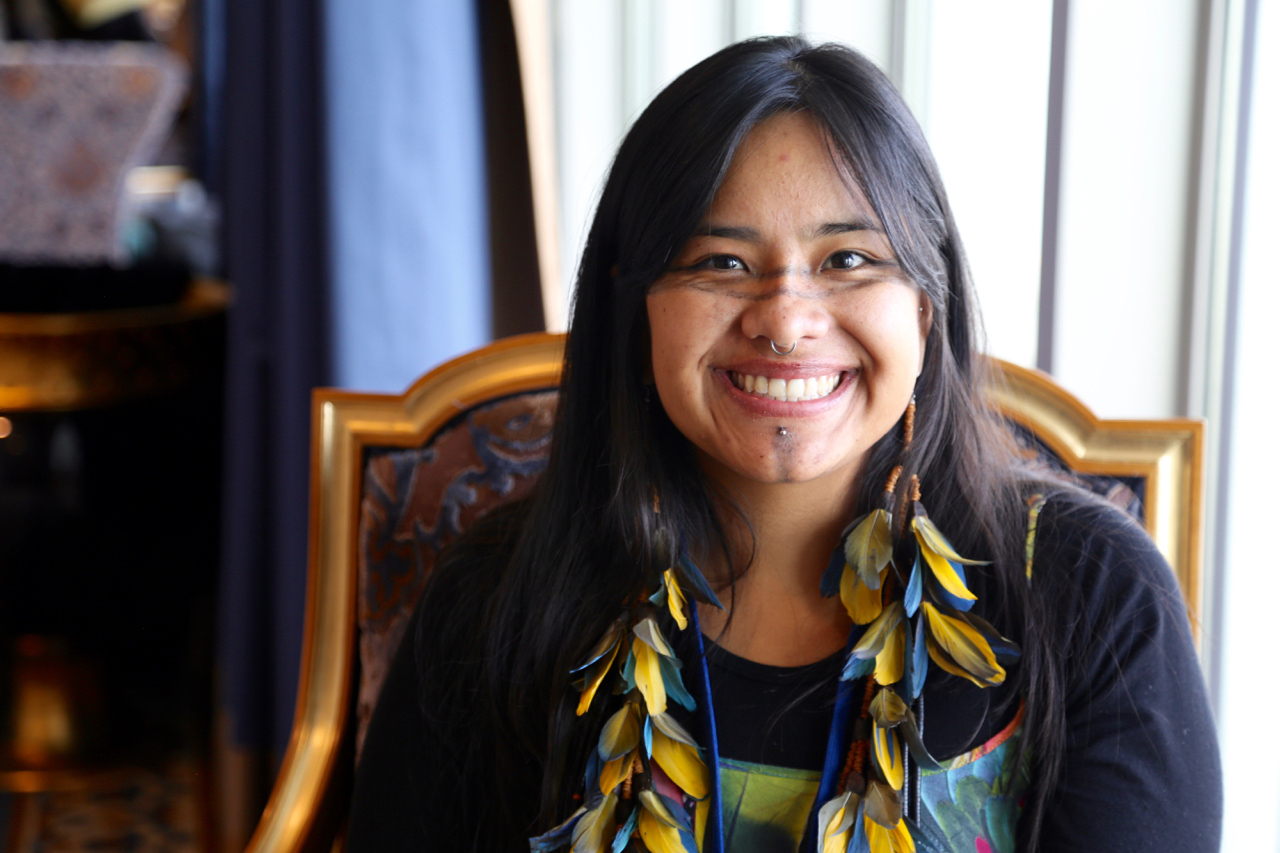
My name is Taily and I belong to the Terena indigenous peoples of Brazil. We are in the State of Mato Grosso do Sul on the border with Paraguay and Bolivia. I’m 24 years old and just finished studying anthropology at university. I am an advocate for indigenous rights. The indigenous movement was always present in my life because my father was one of the founders in Brazil. So it’s something that I feel in my heart. I need to continue this work not just because my father started it but because it’s something that my people need.
Can you tell me about your experience of education? What challenges did you have to overcome?
I wasn’t raised in my community, I have family there but because of the movement my father was sent to the city. But I never lost the bond with my community. I was told: If you’re going to study, you have to leave your community and that’s something that I faced. When I was a teenager I used to get mad because I was like, ‘What am I doing in the city? I hate this school.’
People can be really prejudiced when you come from an indigenous background and especially if you are the only indigenous girl in your school. You hear a lot of jokes about your identity and sometimes you get home sick. I thought If I was in my community I would not be suffering. But nowadays I will admit that my mother and father invested a lot in my education. I speak English, I speak Spanish, and all this only happened because they pushed me to work. Now I know that education is a powerful tool and can open a lot of doors for us.
Talking about other girls in your community, how many are able to go to school? Is the situation of girls in your community changing?
When they are kids, everybody goes to school. It doesn’t matter if you’re a boy or a girl. When we face difficulties (and this happens…) it’s a cultural thing — not a gender thing.
But for the girls the problem would start when they turn into women — when they get their period, the age to help at home. Sometimes you’re not able to go to school because you need to help your family with domestic activities, and boys don’t need to do that. The problem gets worse as you get older, because in my community we don’t have high schools. You have to go to another community or to the city to get a secondary education. Sometimes for a girl this is impossible if you don’t have the support of your family, or if you don’t have the money to stay in the city. And even if in spite of all these problems someone decides to go to school in the city, you face violence in the form of discrimination against indigenous people.
People look at you with prejudice — not only with jokes, but there is this sexual imagery associated with indigenous women that comes from colonisation. Like indigenous women are only there to procreate. So we have to face this barrier and many other difficult situations. One has to be really emotionally secure to empower yourself, otherwise you’ll give up.
What has been the biggest challenge for you to continue in education — through primary, secondary, and now as a graduate?
The biggest challenge for me is that when you choose to have an education, to go to university, you are giving up living in your community — you are giving up the culture, you are giving up on having a family, as traditionally girls from my community get married early, have a husband, have a child. You need to choose what you want from your life. It’s not that I am giving up on these things, but I am prioritising my studies, because it opens doors. Later I want to have a child, and have my home but also to fight for my people and to have a voice.
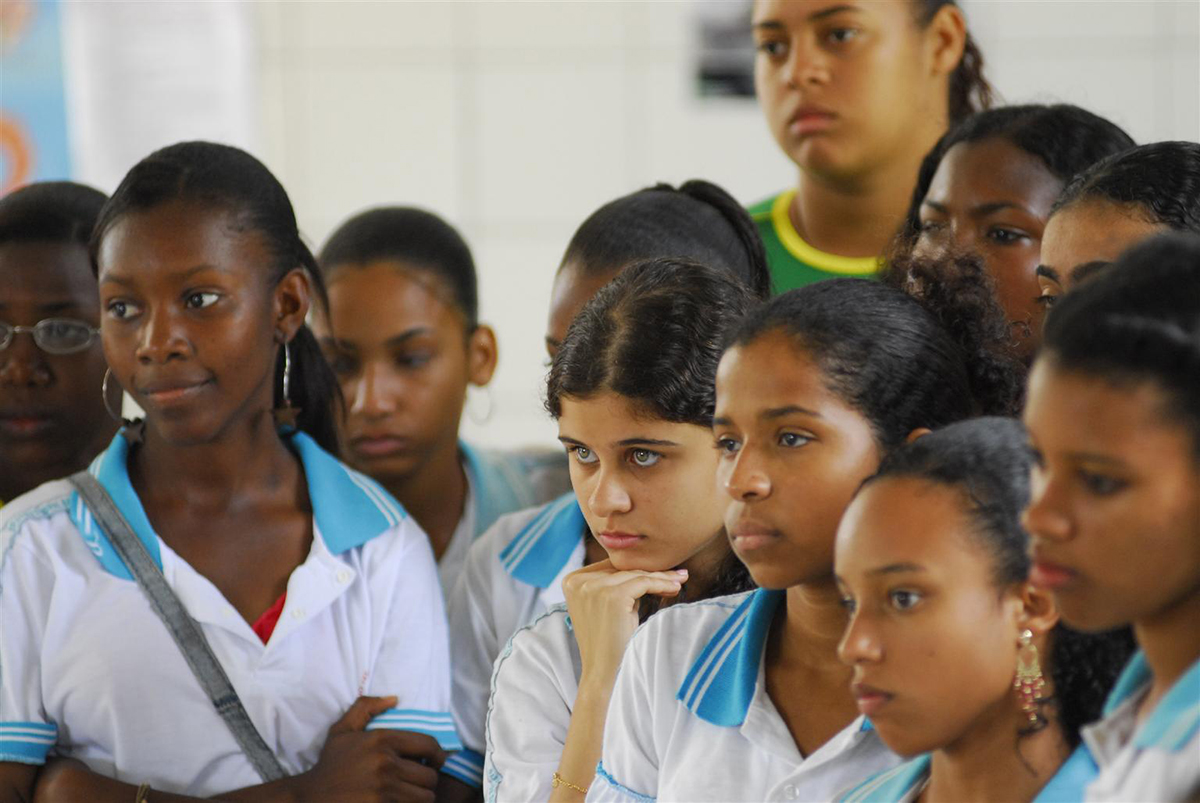
If you were advising the Minister of Education in Brazil what suggestions would you make? What things could be done to make quality education more accessible to girls in your community?
Well, in Brazil we have this problem right now because investments in education have been frozen. So I would say the first thing is to invest more in education and health as these are the basic things for our community and society.
The second thing I would say is invest in the teachers who are going to the community. I remembered how my mother as a teacher suffered with a low salary and because [being a teacher] is not considered valuable.
I would say we are in a transition because we have members of the indigenous community going to universities and then they come back to the community to be teachers, but we still have teachers that came from outside [the community]. Sometimes for them it’s difficult to stay away from their homes and there’s a cultural difference. When you are in the city you are used to certain things but when you go to our community we don’t have the same facilities. So they need to enable teachers that are going to the community to understand the culture.
And the third thing is to create more schools in our community because for us it’s so difficult to go outside. I have a lot of friends — they are amazing, intelligent, but they don’t want to go to university because it’s outside their community. Brazil has a lot of scholarships for indigenous people to go to university, and this is a good thing because it’s increasing diversity, but we still have barriers. We don’t have the support, especially if you come to the city from a different world.
I was really privileged because my family was supporting me, but this is not the reality for everybody. I think indigenous education is a two-way process. It’s important to have intercultural education in our communities, within the context of our culture and adapted to our culture. But also it’s important to have indigenous education in non-indigenous schools because otherwise people are going to continue thinking in stereotypes — that indigenous peoples live in deep jungles, they are naked, and they don’t have access to anything.
No, we are here, we have a president, I have a cell phone, I am here at the UN. We are normal people.
What’s your vision for the next 10 years? What’s your vision for you and for your community?
For me, in 10 years, I want to continue studying. I want to continue the indigenous movement as a woman. I want to open doors, and if I can I would like to inspire other girls to do the same. One of the things that bothers me is that I have amazing friends that didn’t have the same opportunities. So I want to open doors. I want them to feel as secure as possible.
In 10 years I want to see more indigenous people getting education, more indigenous people involved in the indigenous movement, and more indigenous people being proud of being indigenous.
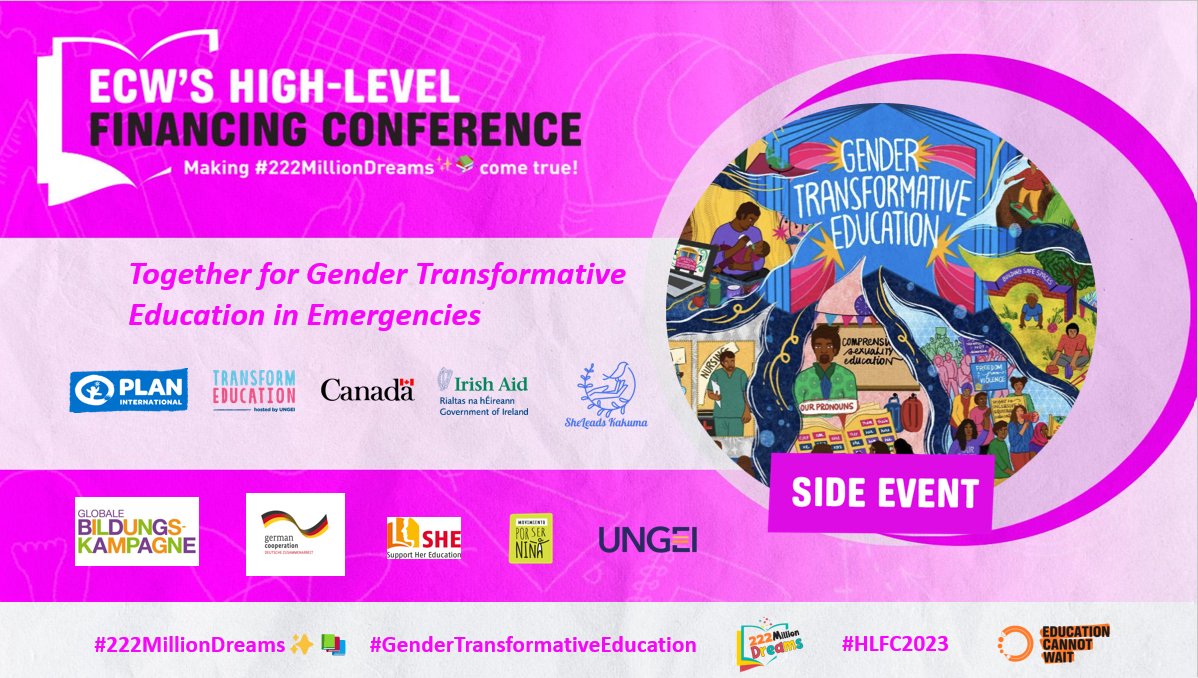
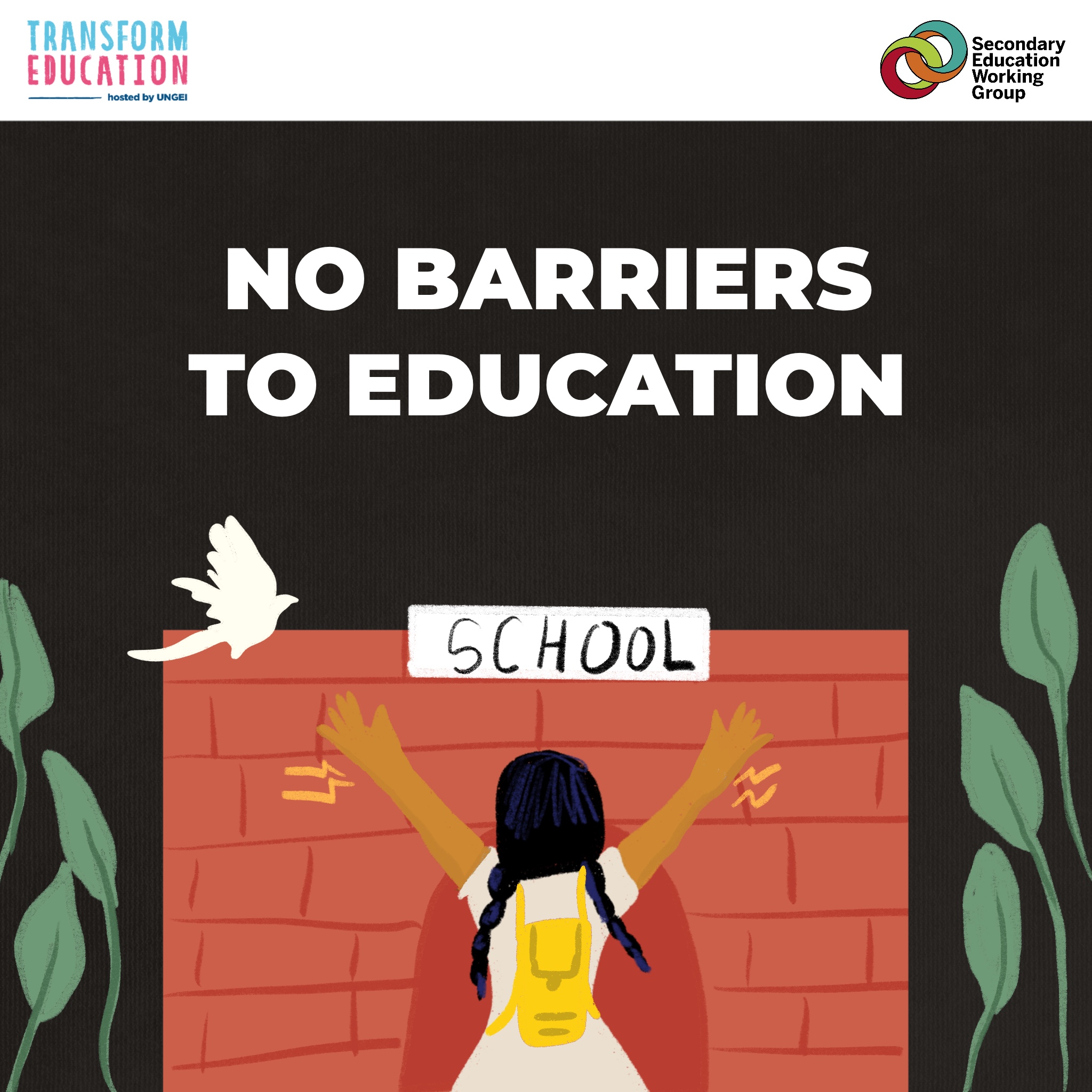
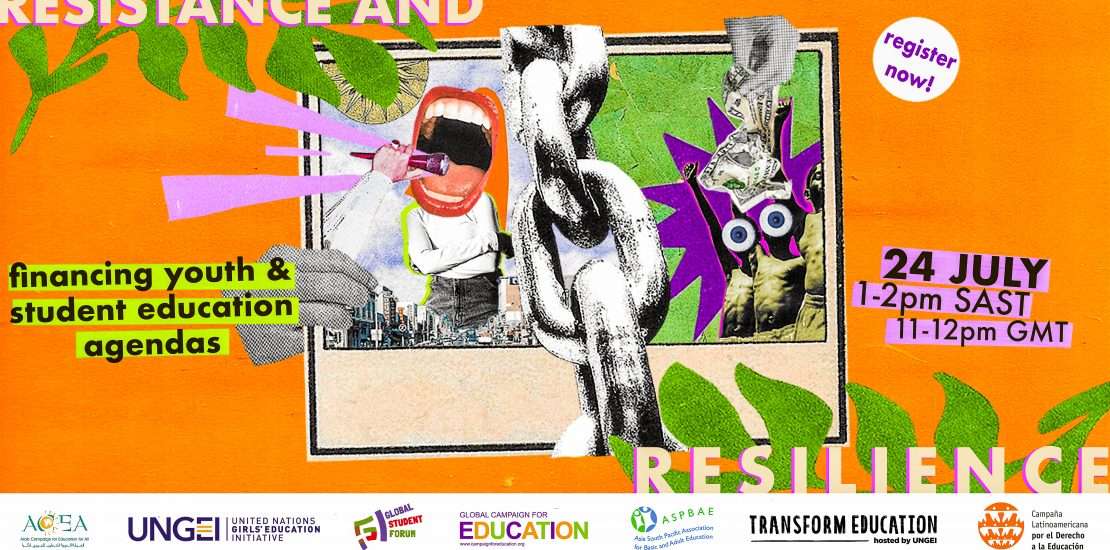
 English
English العربية
العربية Български
Български Hrvatski
Hrvatski Čeština
Čeština Dansk
Dansk Nederlands
Nederlands Suomi
Suomi Français
Français Deutsch
Deutsch Ελληνικά
Ελληνικά हिन्दी
हिन्दी Italiano
Italiano Română
Română Русский
Русский Español
Español Maltese
Maltese Zulu
Zulu አማርኛ
አማርኛ